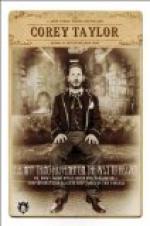“I don’t think you’re a damanarkist.” Her voice was joyous. “You’re so nice. Can you see good?”
“Very good. There isn’t much to see. One might if it weren’t for that—”
“Old tunnel! I don’t think they ought to have them if it isn’t snowing or raining. Oh, I do hope Father can come out soon! If I tell you something will you promise not to tell, not even say it to yourself out loud?” Her face was raised to his. “I’m going to get Father’s Christmas present to-night. We’re going down-town when he is through over there. He can’t see me buy it, and it’s something he wants dreadfully. I’ve been saving ever since last Christmas. It’s going to cost two dollars and seventy-five cents.” The eager voice trailed off into an awed whisper. “That’s an awful lot to spend on something you’re not bound to have, but Christmas isn’t like any other time. I spend millions in my mind at Christmas. Have you bought all your things, Mr.—Mr.—don’t even know your name.” She laughed. “What’s your name, Mr. Man?”
Van Landing hesitated. Caution and reserve were inherent characteristics. Before the child’s eyes they faded.
“Van Landing,” he said. “Stephen Van Landing.”
“Mine is Carmencita. Father named me that because when I was a teensy baby I kicked my feet so, and loved my tambourine best of all my things. Have you bought all your Christmas gifts, Mr. Van—I don’t remember the other part.”
“I haven’t any to buy—and no one to buy for. That is—”
“Good gracious!” The child turned quickly; in her eyes and voice incredulity was unrestrained. “I didn’t know there was anybody in all the world who didn’t have anybody to buy for! Are you—are you very poor, Mr. Van? You look very nice.”
“I think I must be very poor.” Van Landing fastened his glasses more securely on his nose. “I’m quite sure of it. It has been long since I cared to buy Christmas presents. I give a few, of course, but—”
“And don’t you have Christmas dinner at home, and hang up your stocking, and buy toys and things for children, and hear the music in the churches? I know a lot of carols. Father taught me. I’ll sing one for you. Want me? Oh, I believe they are coming out! Father said they wouldn’t want him as long as the others. If I lived in a palace and was a royal lady I’d have a harp longer than anything else, but Father says it’s on account of the food. Food is awful high, and people would rather eat than hear harps. Oh, there’s Father! I must go, Mr. Van. Thank you ever so much for holding me.”
With a movement that was scientific in its dexterity the child slipped from Van Landing’s arms and jumped from the railing to the porch, and without so much as a turn of the head ran down the steps and across the street. Darting in between two large motor-cars, Van Landing saw her run forward and take the hand of a man who was standing near the side-entrance of the house in which the wedding had taken place. It was too dark to distinguish his face, and in the confusion following the calling of numbers and the hurrying off of guests he felt instinctively that the man shrank back, as is the way of the blind, and an impulse to go over and lead him away made him start down the steps.




